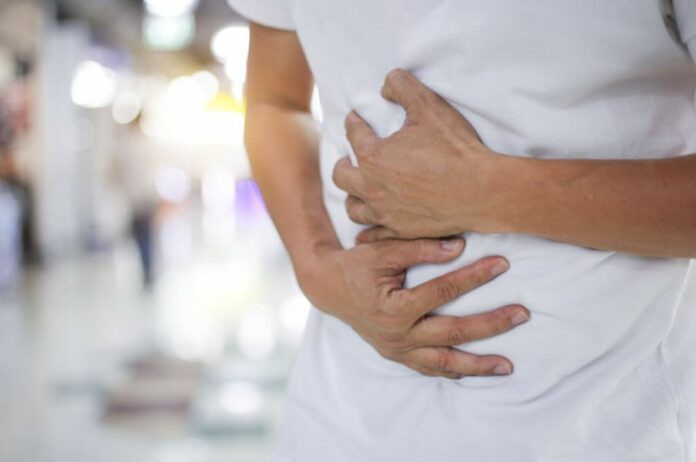Looking to Minimize Your Risk of Inflammatory Bowel Disease (IBD) but Unsure How to Begin? Here’s an Easy Initial Step Backed by the Latest Research to Enhance Your Gut Health.
IBD is becoming more common all around the globe, and it is increasing most quickly in societies with industrialized, metropolitan lifestyles and often sugar-heavy diets.
This new research shows how sugar may be damaging to the stomach, adding to the mounting evidence that consuming excessive amounts of sugar is bad for a number of reasons. High-density sugar, which may be found in foods like soda and sweets, may be something to avoid for individuals with IBD.
The new study, which has been published in Cellular and Molecular Gastroenterology and Hepatology, offers valuable insights into the potential mechanisms behind the symptom-alleviating effects of reducing sugary foods in patients with IBD.
“Too much sugar isn’t good for a variety of reasons,” adds senior author Timothy Hand, “and our study adds to that evidence by showing how sugar may be harmful to the gut.
“For patients with IBD, high-density sugar — found in things like soda and candy — might be something to stay away from.”
Led by Ansen Burr, Ph.D., a student in the Medical Scientist Training Program at the University of Pittsburgh, a team of researchers conducted a study involving mice to investigate the effects of diet and a chemical called DSS on the development of inflammatory bowel disease (IBD) symptoms.
The researchers initially divided the mice into two groups, with one group receiving a standard diet and the other group being fed a high-sugar diet. Subsequently, the mice were exposed to DSS, a chemical known to cause colon damage and replicate IBD symptoms.
Remarkably, all the mice on the high-sugar diet succumbed to the illness within a span of nine days. In contrast, the animals on the standard diet managed to survive throughout the entire 14-day experiment.
To unravel the mechanism behind the detrimental impact of sugar in mice with IBD symptoms, the team focused their investigation on the colons of the animals. The colon, also referred to as the large intestine, possesses a lining composed of epithelial cells organized in finger-like structures called crypts. In a healthy colon, these cells are continually regenerated through the division of stem cells located at the base of each crypt.
“The colon epithelium is like a conveyor belt,” adds Hand. “It takes five days for cells to travel through the circuit from the bottom to the top of the crypt, where they are shed into the colon and defecated out. You essentially make a whole new colon every five days.”
According to Hand, when mice following a high-sugar diet were administered DSS (dextran sulfate sodium), their biological circuitry collapsed. Remarkably, certain mice experienced a complete loss of the protective epithelial cell layer in their colon, resulting in an accumulation of blood and immune cells within the organ.
To the researchers’ surprise, a high-sugar diet proved to be equally detrimental to germ-free mice treated with DSS, indicating that sugar directly impacts the colon and is not reliant on the gut microbiome as previously hypothesized.
In the subsequent phase of the study, the team examined the effects of sugar on both mouse and human colonoids. Colonoids are miniature intestines, comparable in size to poppy seeds, that can be cultivated in a laboratory setting. As the concentrations of glucose, sucrose, or fructose increased, a noticeable decline in the development and growth rate of colonoids was observed. This compelling evidence demonstrates that sugar hampers the process of cell division.
They “found that stem cells were dividing much more slowly in the presence of sugar — likely too slow to repair damage to the colon,” points out Hand.
“The other strange thing we noticed was that the metabolism of the cells was different. These cells usually prefer to use fatty acids, but after being grown in high-sugar conditions, they seemed to get locked into using sugar.”
In conditions where there is an abundance of sugar, the metabolic pathways within cells undergo significant changes, resulting in a decrease in the production of ATP. ATP is a crucial molecule that provides energy for various cellular processes. This altered cellular metabolism has been found to interfere with the division capacity of stem cells, leading to a slowdown in the renewal of the colon lining and an acceleration of gut damage in individuals with inflammatory bowel disease (IBD).
These discoveries shed light on the possible explanations behind previous research that has established a connection between the consumption of sweetened beverages, such as sodas, soft drinks, and juices, and adverse outcomes in patients with IBD.
“If you eat an apple or an orange, you’re eating a lot of sugar, but that sugar is tied up in the fruit’s cells, so it takes a long time to digest and open up those cells to get the sugar,” explains Hand. “Whereas if you drink a soda, the sugar is available almost the second it hits your intestine, and it’s easy to drink a huge amount of sugar in a very short time. Our research suggests that consuming high levels of sugar could have negative outcomes for repairing the colon in patients with inflammatory bowel disease.”
Hand stated that forthcoming investigations, conducted in close collaboration with coauthor Dr. Semir Beyaz, an assistant professor at Cold Spring Harbor Laboratory, will center on comprehending the impact of diet and immune response on inflammatory bowel disease (IBD).
“I think that we need to investigate more deeply what diets are going to benefit patients who have intestinal damage, whether that be from IBD or from radiation therapy to treat colon cancer,” adds Hand. “It’s about a nutraceutical approach to colon damage, or the idea of finding the right diet for a particular patient.”
Image Credit: Getty
